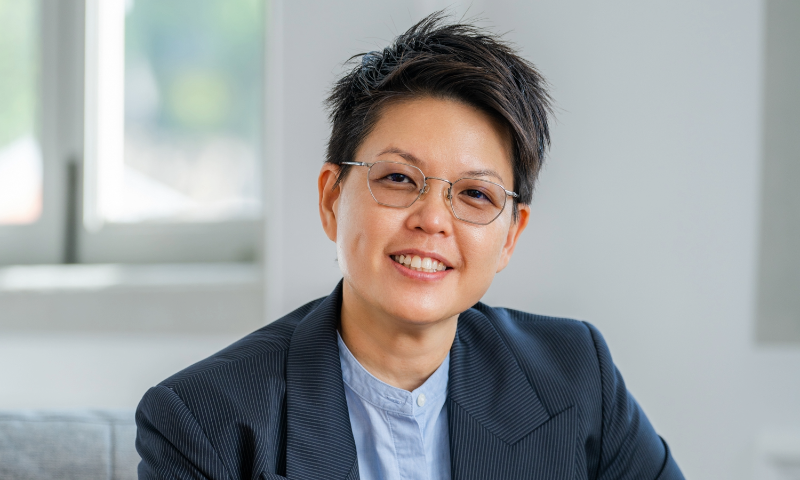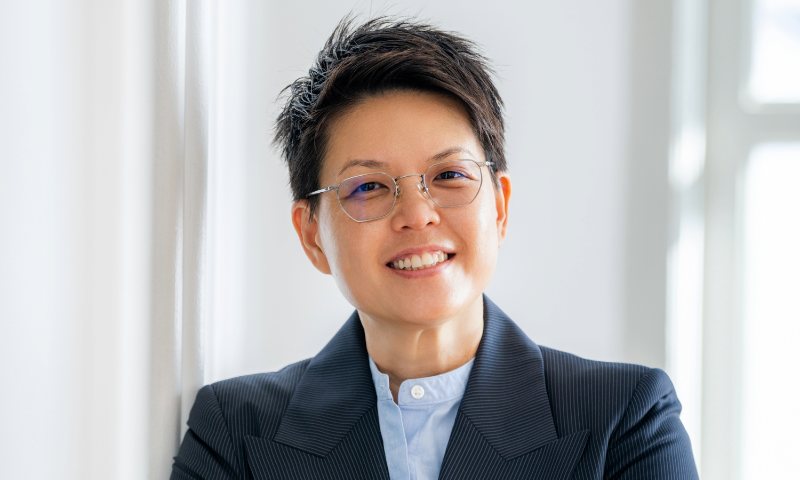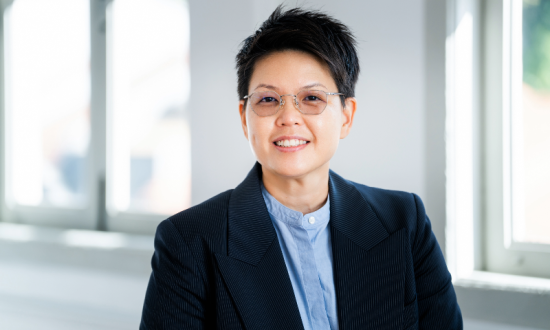Sharon Ng, a strategic and driven global executive with over two decades of experience in leading across technology, business strategy and operation organisations, exemplifies the epitome of tech leadership. Her career is marked by her inspiring leadership and innovative approach to delivering clear business outcomes and impact, earning her the prestigious CIO75 and CIO100 ASEAN Award three times.
At the helm of significant digital and business transformation initiatives, she successfully navigated global business and IT landscapes, guiding cross-border teams towards industry-leading solutions. A well-respected trusted adviser and a champion of transformative leadership, Sharon is defined not just by her achievements, but also by her commitment to shaping the future of technology and aspiring tech leaders.
Recently, in an exclusive interview with Digital First Magazine, Sharon shared her professional trajectory, how the role of CIO has evolved over the last decade, the best piece of advice received by her, the secret sauce behind her success, future plans, words of wisdom, and much more. The following excerpts are taken from the interview.
Sharon, please tell us about your background and areas of interest.
Born in Singapore and having spent a significant part of my life in Australia, I consider both Melbourne and Singapore home. With over 25 years of experience, my career evolved from software engineering to leading global technology teams, before switching gears to leading business transformation, strategy and operations at companies such as Microsoft and Dell Technologies. Outside of work, I am an avid reader on financial markets and investments. I am also a lover of the nature, particularly mountains and oceans. Additionally, I have a keen interest in culinary experiences, embracing my foodie side.
Brief us about your roles and responsibilities as MF Chief Information Officer & Cluster Director at GovTech Singapore.
In my current role within Govtech’s Services Group’s senior leadership, I provide strategic and tactical technology leadership to the trade and industry cluster and at the MTI ministry family level. With a strong focus on leading digital transformation efforts that not only deliver tangible business value but also contribute to economic growth through data-driven policy making. An integral part of my responsibilities is fostering an innovative and agile organizational culture. This commitment underpins our efforts to build robust digital capabilities, ensuring we provide scalable and valuable digital services and solutions aligned with the strategic priorities of the Ministry of Trade and Industry, and advancing Singapore’s Smart Nation Vision.

How have you seen the role of the CIO change in the last 5-10 years, and what changes do you see on the horizon in the years ahead?
In the last 5-10 years, the CIO’s role has definitely evolved significantly. It has transitioned from managing IT systems to becoming strategic business leaders and influential change agents. CIOs now play a more prominent role in board meetings and leading digital innovation and transformation initiatives. This role now demands a deeper understanding of both organizational capabilities and market dynamics, as well as the development of internal capabilities for broader organizational impact.
Looking forward on the horizon ahead, I think the CIO’s role is set to become even more strategic focused, connecting technology with business strategy to achieve desired outcomes. They will be leading the charge to new technological frontiers and leveraging emerging technologies to foster innovation, organizational agility and resilience, equipping businesses to respond swiftly and effectively navigate unexpected market shifts and challenges.
What do you think are the new technologies and cultures/methodologies which will define the future workplace, and what do you think is the role of the CIO in helping design and deliver these?
In the future workplace, marked by technological advancement and flexibility, we’ll see a shift from traditional settings to boundaryless, hybrid environments. Smart technology, like smart boards, facial recognition, and smartphone-controlled systems, will enhance office spaces. For example, employees can reserve resources such as transportation, parking, and meals seamlessly. Hot desking will become more personalized with automated preferences, and AI will optimize meeting room bookings. Digital collaboration will be elevated through cloud-based tools and virtual reality, making remote participation more immersive. Leveraging IoT and integrating smart building technology will also help boost efficiency and move towards achieving sustainability goals. As these technologies evolve, the role of CIOs will be crucial in ensuring that workplaces not only keep pace with technological advancements but also provide a consistently excellent experience for employees.
In your academic or work career, were there any mentors who have helped you grow along the way? What’s the best piece of advice you have ever received?
Yes, I am very appreciative of all my mentors throughout my life and career journey to date. One of the best advices received: “You are tougher than you think, don’t give up, keep working at it and see it through.”
Which technology are you investing in now to prepare for the future?
In addressing current needs and preparing for the future, our focus is investing in technologies that align with and support our business goals. This includes cloud platforms for agility and rapid deployment, data fabric, and intelligent automation for deeper insights. We are also prioritizing robust cybersecurity measures through zero-trust implementations. Furthermore, there are also exploration for combined emerging technologies such as AI, IoT, and robotics to enhance customer experience and operational efficiency. These technology investments are paramount to staying at the forefront of digital innovation to support our strategic priorities and business outcomes.

What are your passions outside of work?
Traveling is a passion of mine, particularly in exploring new destinations. I cherish spending quality time with loved ones, immersing myself in different cultures, and experiencing how the locals live. A highlight for me is delving into the culinary scene, especially fresh food markets, which offers a taste of the country’s unique flavors and traditions.
You have successfully navigated global business and IT landscapes and guided cross-border teams towards industry-leading solutions over the course of more than two decades of your career. Our readers would love to know the secret sauce behind your success.
I suspect my secret sauce hinges deeply on being authentic, having a clear vision, and decisive leadership. I believe in building trust as the cornerstone of effective team and stakeholder engagement. A critical element of my leadership style is driving execution well while being an inspirational and supportive leader. I like to focus on removing obstacles, guiding teams through challenges, and fostering an environment where pushing boundaries is encouraged.
Where do you see yourself in the next 5 years?
In the next 5 years, I see myself potentially back in a global executive capacity, where I will have a broader scope of influence and strategic responsibility, particularly in driving significant impact and innovation in both business and digital domains. Additionally, I am open to the possibility of embarking on an entrepreneurial journey, exploring new avenues and challenges in the dynamic business landscape.
Given your experiences and achievements, what advice would you give to aspiring technology leaders who aim to make a positive impact in their organizations and the industry as a whole?
For aspiring technology leaders, my key advice is to be bold in challenging the status quo and be the change agent. It is vital to have a clear understanding of the business issues at hand and the factors that can influence them. Foster an innovative and agile tech culture within your team. Leadership should be purposeful and empathetic, embracing adaptability and resilience. Be ready to navigate through changes and challenges with a proactive mindset.






